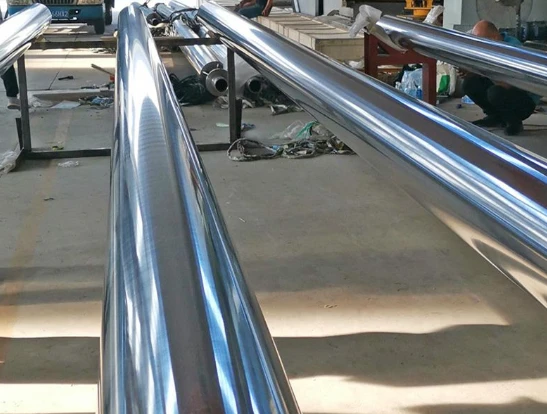
-
 Afrikaans
Afrikaans -
 Albanian
Albanian -
 Amharic
Amharic -
 Arabic
Arabic -
 Armenian
Armenian -
 Azerbaijani
Azerbaijani -
 Basque
Basque -
 Belarusian
Belarusian -
 Bengali
Bengali -
 Bosnian
Bosnian -
 Bulgarian
Bulgarian -
 Catalan
Catalan -
 Cebuano
Cebuano -
 China
China -
 China (Taiwan)
China (Taiwan) -
 Corsican
Corsican -
 Croatian
Croatian -
 Czech
Czech -
 Danish
Danish -
 Dutch
Dutch -
 English
English -
 Esperanto
Esperanto -
 Estonian
Estonian -
 Finnish
Finnish -
 French
French -
 Frisian
Frisian -
 Galician
Galician -
 Georgian
Georgian -
 German
German -
 Greek
Greek -
 Gujarati
Gujarati -
 Haitian Creole
Haitian Creole -
 hausa
hausa -
 hawaiian
hawaiian -
 Hebrew
Hebrew -
 Hindi
Hindi -
 Miao
Miao -
 Hungarian
Hungarian -
 Icelandic
Icelandic -
 igbo
igbo -
 Indonesian
Indonesian -
 irish
irish -
 Italian
Italian -
 Japanese
Japanese -
 Javanese
Javanese -
 Kannada
Kannada -
 kazakh
kazakh -
 Khmer
Khmer -
 Rwandese
Rwandese -
 Korean
Korean -
 Kurdish
Kurdish -
 Kyrgyz
Kyrgyz -
 Lao
Lao -
 Latin
Latin -
 Latvian
Latvian -
 Lithuanian
Lithuanian -
 Luxembourgish
Luxembourgish -
 Macedonian
Macedonian -
 Malgashi
Malgashi -
 Malay
Malay -
 Malayalam
Malayalam -
 Maltese
Maltese -
 Maori
Maori -
 Marathi
Marathi -
 Mongolian
Mongolian -
 Myanmar
Myanmar -
 Nepali
Nepali -
 Norwegian
Norwegian -
 Norwegian
Norwegian -
 Occitan
Occitan -
 Pashto
Pashto -
 Persian
Persian -
 Polish
Polish -
 Portuguese
Portuguese -
 Punjabi
Punjabi -
 Romanian
Romanian -
 Russian
Russian -
 Samoan
Samoan -
 Scottish Gaelic
Scottish Gaelic -
 Serbian
Serbian -
 Sesotho
Sesotho -
 Shona
Shona -
 Sindhi
Sindhi -
 Sinhala
Sinhala -
 Slovak
Slovak -
 Slovenian
Slovenian -
 Somali
Somali -
 Spanish
Spanish -
 Sundanese
Sundanese -
 Swahili
Swahili -
 Swedish
Swedish -
 Tagalog
Tagalog -
 Tajik
Tajik -
 Tamil
Tamil -
 Tatar
Tatar -
 Telugu
Telugu -
 Thai
Thai -
 Turkish
Turkish -
 Turkmen
Turkmen -
 Ukrainian
Ukrainian -
 Urdu
Urdu -
 Uighur
Uighur -
 Uzbek
Uzbek -
 Vietnamese
Vietnamese -
 Welsh
Welsh -
 Bantu
Bantu -
 Yiddish
Yiddish -
 Yoruba
Yoruba -
 Zulu
Zulu
frp grating
Understanding Fiber Reinforced Polymer (FRP) Grating A Modern Solution for Various Applications
Fiber Reinforced Polymer (FRP) grating is a cutting-edge material that has garnered significant interest across various industries due to its unique characteristics and advantages. Made from a combination of polymer resins and reinforcing fibers, typically glass or carbon fibers, FRP grating is renowned for its outstanding strength-to-weight ratio, durability, and corrosion resistance. These qualities make it an ideal choice for a wide range of applications, particularly in environments where traditional materials like steel or wood would degrade or fail.
Benefits of FRP Grating
One of the standout features of FRP grating is its remarkable resistance to corrosion. This property makes it particularly suitable for use in chemical plants, sewage treatment facilities, and marine environments, where exposure to harsh substances and moisture can rapidly deteriorate conventional materials. Additionally, because FRP does not rust, it significantly reduces maintenance costs, extending the lifespan of the installations.
Another advantage of FRP grating is its lightweight nature. Weighing significantly less than steel, FRP can simplify transportation and installation processes, leading to reductions in labor costs and project timelines. The ease of handling is especially beneficial in applications where safety and accessibility are paramount.
Moreover, FRP grating is available in a range of colors and can be manufactured to meet specific structural requirements. This versatility allows it to fit seamlessly into various design aesthetics while meeting rigorous loading specifications. The material can also be produced in various shapes, including molded, pultruded, and custom designs, to suit specific applications.
Applications of FRP Grating
frp grating

FRP grating is widely used in numerous applications across multiple sectors. In the industrial sector, it serves as flooring, walkways, and platforms in chemical processing plants, food and beverage industries, and wastewater treatment facilities. Its slip-resistant surface is especially valued in wet environments, enhancing worker safety.
In marine applications, FRP grating is utilized for piers, docks, and boat ramps. The material’s resistance to seawater and buoyancy properties make it an excellent choice in coastal zones, where traditional construction materials would quickly succumb to the environment's rigors.
Moreover, the oil and gas industry frequently employs FRP grating in offshore platforms and refineries. The material’s strength and resistance to harsh chemicals help ensure the integrity and safety of operations in these demanding settings.
In construction and architecture, FRP grating offers aesthetic possibilities alongside functionality. It can be used in bridges, staircases, and facades, promoting not only durability but also innovative design. Additionally, FRP continues to gain traction in the energy sector, particularly in wind turbine platforms and solar panel installations, where its lightweight properties contribute to overall efficiency.
Conclusion
In summary, Fiber Reinforced Polymer (FRP) grating stands out as a versatile and robust solution for a myriad of applications. Its unique properties—corrosion resistance, lightweight, and customizable designs—coupled with its environmental adaptability make it an attractive option for industries facing the challenges of traditional materials. As technology advances and demand for sustainable and efficient building solutions increases, FRP grating is poised to play an even more significant role in future construction and infrastructure developments. The future of materials engineering looks bright with the integration of FRP grating across various fields, promising enhanced safety, longevity, and innovation.









